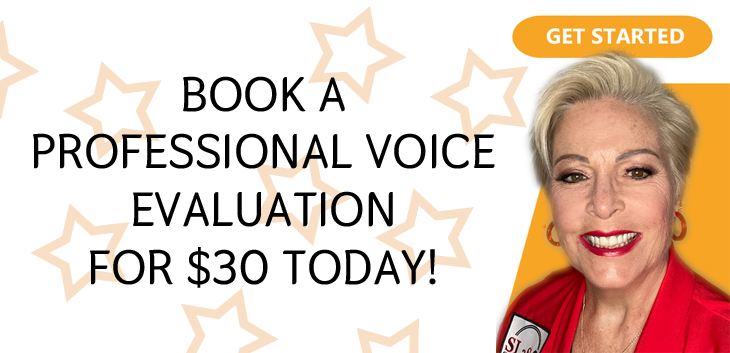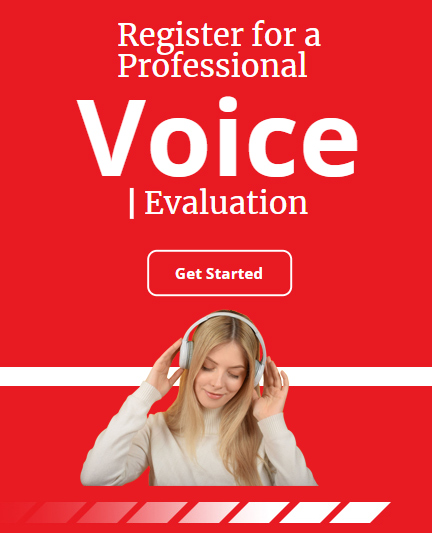“At the center of your being, you have the
answer; you know who you are and you know
what you want.”
― Lao Tzu
In my last blog post, I discussed pursuing a college degree in music. While there have often been many programs dedicated to classical music and music education, programs that are specifically targeted towards those interested in musical theatre and commercial music have also grown in popularity.
In this blog post, I want to focus on those who have chosen to pursue a career in commercial music and how to go about it once you have received your degree. Stay tuned for future posts, as we will touch more on this and making a living in the music business!
***
Now that your voice is in tip-top shape and you have formed good practice routines that will keep it that way, you are ready to start getting yourself out there and taking the steps that will lead to a career in music. The music business is not like most other businesses – there is no one-and-only way to make it in the music business. It’s not like going to medical or law school where you can be fairly confident that you will work in your field once you graduate.
Working your way up the ladder requires networking and a reputation of being professional and reliable, along with excellence at your craft. A lot of the paid jobs are word-of-mouth referral only so every job you do can potentially be a bridge to more employment if you make a good impression.
I spent over 20 years in Los Angeles as the lead singer and keyboard player in numerous bands of all kinds – rock, blues, jazz, big band, cover bands, and original bands. I also made quite a good living doing sessions and jingles (commercials). All those venues are ways to make a living doing what you love to do. Of course if you want to be a recording artist you will have to focus on original music.
Here are some things you should be doing to get your career started:
1. Be an Amazing Singer and Learn to Play an Instrument: Take lessons and develop your voice. Learn to play an instrument too. Vocalize daily, and then work on applying good vocal technique to songs.
2. Get in Shape: Exercise every day and get into great physical shape. You are going to need lots of stamina. Change your eating habits. Stay away from processed and fast food and focus on fresh vegetables, fruits, and high nutrition foods, as well as drinking 100oz of water every day. That’s right, 100oz! Buy a 100oz bottle, and work on it all day. It will become a habit.
3. Develop Your Own Style: Sing cover tunes to develop your own style. Imitate other artists and learn the “language” of style by knowing the scales that riffs and runs come from, and your own style will develop from that. Do the exercises in Step 6 – Flexibility and Step 7 – Style from the Eight Steps of Vocal Development in this book to create flexibility and accuracy for riffs and runs, as well as familiarity with the pentatonic and blues scales that riffs and runs evolved from.
4. Network: Sit in with local bands. (That means get up and do a song with the band, if they ask you to. You have to know their repertoire in their key). Do open mics. Join NARAS and attend their events. Get out and be seen!
5. Make a Demo: Make a 3-5 song demo to use for promotion, and get good headshots and business cards. This is your promotional package that you will use to get gigs. The songs should show your diversity as a singer, and your ability to sing in various styles, if you would like to do cover band, corporate or studio session gigs. If you are going the singer/songwriter route, your demo should encapsulate your particular style as an artist and writer.
6. Do BGV’s: Contact local recording studios and jingle houses to do sessions as a backup singer. Have your demo ready. Your session singer demo should include samples of you doing BGV’s (background vocals) in layers, and samples of yourself singing in many different styles authentically.
7. Do Cover Gigs: Get a gig with a cover band. Do party bands, wedding bands, corporate gigs. This is a great way to become seasoned as a performer and to become comfortable onstage. You will have to be able to sing authentically in every music style from jazz to rock to R&B to country to do these gigs. They are a great training environment. For wedding band and party band gigs, if you are an independent contractor you will need professional “charts” of every song you sing, in your key. This are not photo-copied sheet music, but professionally done chord charts usually only two pages at most, that musicians use to play the songs. You can do these on software programs such as Finale or Sibelius. They are also called lead sheets. They just include the chords of the song, lyrics, and sometimes melodic or rhythmic indications.
8. Hire a Professional to Design Your Website: Set up a professional website that includes pictures, blogs, and downloadable original music. Join Reverbnation (www.reverbnation.com) where you can post your music and create an electronic press kit. Many booking agents and managers don’t even want hardcopies anymore; it’s all done via computer (which is very convenient!). For a nominal fee you will have an outstanding press kit ready at the click of a key. This is really a necessity in today’s market.
9. Be Active on Social Media: Create and maintain a presence on Facebook, Twitter, Myspace, YouTube. Post your music and get lots of friends to “like” you. Many bands have gotten record deals this way! Create your own buzz and the record companies may come-a-courting Since this can be very time-consuming, there are many artists who hire someone to do this work for them.
10. Get an Agent or Manager: I could write a book about this topic alone. Suffice to say that these days you are unlikely to find either an agent or a manager unless you have already started a local and national grass roots buzz. Gone are the days where a record company picked you up and all you had to do was be a creative artist and spend the money they fronted you. You have to start the ball rolling yourself and prove that you can generate and sustain public interest in your music. Several bands have been signed to record companies as a result of their popularity on social media sites such as My Space or YouTube. Post your videos, get some “likes” and get the ball rolling!
When you are ready to get a music manager or agent, here are the things you will need:
1. Professional recordings of your best music.
2. Professional looking photos of you and/or your band.
3. A professionally designed website, preferably in a format such as Word Press so you can update it yourself.
4. A mailing list and a place where people can sign up to be on your email list (usually your website).
5. A social network presence (Twitter, Facebook, MySpace, YouTube). Presence means you have to be actively posting all the time, and people need to be responding to your posts and updates.
6. Live performance footage (preferably in front of a crowd). The more professional the environment, the better. Professionally done live action photos.
7. A well-written bio detailing your performances, CD releases, tours, education, etc. Hire a professional to do this too, if need be. If you are not a great writer, this is money well spent.
These are the marketing materials you will use to build your business (yes, the music business is a business!). Having these materials done professionally will cost more up front, but will pay off as you build a business in music. Remember, you are marketing a product, and that product is- YOU! Present yourself in the most professional way you can.
11. Learn How to be a Great Songwriter: Take lessons with a pro, do online courses, or do workshops such as those offered by NSAI, ASCAP and BMI. The NSAI (Nashville Songwriter’s Association International) organization is not only for country songwriters. They have great classes on songwriting and are located in every major city. Berklee has terrific online song writing courses. Educate yourself, and then work with masters of the craft. When you are at the top of your songwriting game, write and record an album of original music. Play original gigs and sell your CD at the original music venues in your area.
Co-write with everyone you can. Visit Nashville and Los Angeles and take part in songwriting conventions and educational events. Read books on songwriting. Here are list of my favorites:
The Craft and Business of Songwriting by John Braheny
Six Steps to Songwriting Success by Jason Blume
Inside Songwriting by Jason Blume
88 Songwriting Wrongs and How to Right Them by Pete and Pat Luboff
12 Steps to Building Better Songs by Pete and Pat Luboff
Tunesmith by Jimmy Webb
Networking in the Music Business by Dan Kimpel
How to Promote Your Music Successfully on the Internet by David Nevue
The Musician’s Guide to Making and Selling Your Own CD’s and Cassettes by Jana Stanfield
The Art of Writing Love Songs by Pamela Phillips Oland
The Secrets of Songwriting by Susan Tucker
Writing Music for Hit Songs by Jai Josephs
Your First Cut – A Step by Step Guide to Getting There by Jerry Vandiver and Gracie Hollombe
How to Write a Hit Song by Molly Ann Leiken
I have found that Nashville is a very welcoming and nurturing place for songwriters of all kinds. If at all possible I would highly encourage you to make trips to Nashville or Los Angeles and plan to stay for a week at a time at least; take classes through NSAI, BMI, or ASCAP, get connected, meet other songwriters, go out and see live music everywhere, and, of course, pitch your songs on Music Row.
Events like Tin Pan South are loads of fun to attend too. Be sure to join a PRO (Performing Rights Organization) such as ASCAP, BMI, or SESAC (which is invitation-only). These groups provide great education and support, as well as seeing to it that your money as a songwriter gets back to you if your song is used by anyone but you. www.ascap.com, www.bmi.com, www.sesac.com.
12. Join a Band or Start One: Start where you are. Every town is full of aspiring musicians and every town has places for a band to play. I sang for over 20 years in every rock, jazz, blues, cover, original, and every-other-kind-of-band you can name in Los Angeles. That is how you become a seasoned musician, learn how to work a crowd, design a set list that works, and refine and hone your stage presence. Do cover bands, and start an original band that loves your music. Go to music stores like Guitar Center, where there are always notices for musicians who want to join a band. Craig’s List is another way of connecting with musicians. You can be in different bands at the same time; one that plays covers and does clubs, weddings, and corporate events to make money, and another that does strictly originals, where you won’t make a lot of money in the beginning.

13. Audition: Audition for the talent shows such as American Idol, The Voice, America’s Got Talent, X Factor, etc. Be sure you have done the vocal training preparation work and are in the kind of shape it takes to go the distance on these shows. It’s grueling! Look on their websites to find audition dates. The auditions are usually huge cattle-call type auditions where you sing a cappella surrounded by the noise of hundreds of other singers doing the same thing. You have to get there very early and you will be there all day. If you make it past the cattle call round, you may eventually be filmed so the producers can make a decision as to whether or not you are right for that season’s show. Talent is only one of the factors determining whether or not you make it on the show. They are “casting” and trying to find a balance of personalities and talent.
14. Do Intensive Summer Programs: A summer program is a great place to network with industry professionals and take your skills to the next level. This is a really great thing to do if you live outside a major music city such as LA, New York, or Nashville. The very best one that I can recommend is the VocalizeU Artist Intensive summer programs in LA run by Dave Stroud. This is a 10 day, life changing event, where you are constantly learning new tools and applying them. You will work every facet of your artistry and learn what it takes to make it.
Through the Artist Intensive’s unique program, artists will get to intimately work with prominent songwriters, performance experts, voice teachers, and well-known artists. The highlight of each day is the nightly student concerts with an amazing band, lights and background singers. They have classes on songwriting, background vocal arranging, the music business, music law, performance skills, and lots more. You will rub shoulders with some of the music industry’s movers and shakers, and will be able to interact and learn from them up close. You will make life-long friends. I recommend this program highly! The VocalizeU Artist Intensive is for 13 and older artists. Find out more at vocalizeuevents.com.
15. Do Three Things for Your Career Every Day: Every day, no matter how busy you are with a job or your life, you should find time to do at least three things to move your career forward. Write a song, send an audition package out, make a phone call, work on your craft. Do three things every day, and one day you will wake up and find yourself where you want to be!
16. Use Visualization: Spend time every day in a quiet place writing down your goals, and then mentally seeing them come to life. Keeping your goals in the forefront of your consciousness every day allows you to make daily choices in your life that will lead you toward your goal. With every decision in your daily routine, ask yourself “Is this leading me closer to my goal or further away from my goal?” And then make your life choices accordingly.
Every action you take in every day is either leading toward what you want or away from what you want. Be conscious about your daily choices, whether it’s what you are eating or drinking, who you associate with, or what you allow to take up your limited and precious free time. Choose wisely – make daily choices that lead you toward your goals and eliminate everything you can in your life that leads you away from your goals.
17. Read and study: Educate yourself about the music business, the craft of songwriting, your voice, psychology, and the art of living. Never stop being a learner! Keep your mind open and always try to learn more about music and everything else in life! Read online forums such as those presented in The Modern Vocalist site at www.themodernvocalist.com. A great music business book to read is All You Need to Know About the Music Business by Donald Passman.
18. Get Connected: Buy The Musician’s Atlas by Jude Eolkman, which comes in a print version and in an online version and contains contact information for music venues, booking agents, record labels, publishing companies, and music supervisors. www.musiciansatlas.com. Buy The Indie Bible if you are an independent artist. This volume contains contact information for press, radio, record labels and distributors. www.indiebible.com.
Singers Express is a national singer’s registry that connects singers with producers, ad agencies, and casting directors. www.singersexpress.com.
Musicians Connection is an international online music networking site. www.musiciansconnection.com.
Songs Alive is a nonprofit organization that is a great resource for both singers and songwriters. www.songsalive.org.
Go Girls Music is an online community for female indie musicians. www.gogirlsmusic.com.
Music X-Ray is a great place to connect if you are an artist or songwriter. Music X-Ray is a platform where artists can submit their music directly to industry professionals. When you submit to an opportunity, your track goes directly to the decision makers: no middle-men, no pre-screeners, just a direct link between artist and the industry professional. www.musicxray.com.
Taxi is the world’s largest independent A&R company. www.taxi.com. If you want to get a record, publishing, or film & TV deal, but have to keep your day job, this is a good fit for you.
If you’re trying to land a record deal, nothing works better than hitting the road, playing hundreds of gigs, and selling thousands of CDs from the trunk of your car. If you’re a songwriter, moving to Los Angeles, New York, or Nashville and “paying your dues” is often in the cards. But, if you can’t you just walk away from your life, your job, your family, and your mortgage payment you need a vehicle to help you get your music to the right people. That vehicle could be TAXI.
Record companies, publishers, and music supervisors call them directly to find new artists and bands to sign, to find hit songs, instrumentals and tracks for TV and film placements. Taxi publishes the exact details about what type of music they’re shopping for. They basically function as a matchmaker between you and the powers-that-be.
They also provide feedback on your songs by industry songwriters.
They have a free convention every year called The Road Rally. I have been to a few of these, and they are fun! When you come to the Road Rally, you could have your music picked to be played during the A&R or Music Publishing panels.
Read the Music Connection Magazine: musicconnection.com.
Founded in 1977 on the principle of bridging the gap between ‘the street and the elite’, Music Connection has grown from a popular print publication into a spectrum of products and services that address the wants and needs of musicians, the music tech community and industry support services.
Music Industry Blueprint: Visit www.musicindustryblueprint.com for lots of information about the music industry – articles, blogs, how to make money in the music business, strategies, etc. Rick Barker was Taylor Swift’s manager and he really knows how to tie all the pieces together. The collection of information you will find on this website is terrific!
Rocket to the Stars: Visit www.rockettothestars.com. Wade Sutton provides marketing and media consultations and performance training for singers and bands. There are informational articles, interviews, and the Rocket to the Stars Competition. In a period of just a few years, Rocket to the Stars has become one of the most comprehensive and exciting singing competitions around. The final rounds of the competition takes place in front of live audiences of more than 27, 000 people and the competition, which plays out over a period of several months, works to educate performers about all aspects of the commercial music industry.



